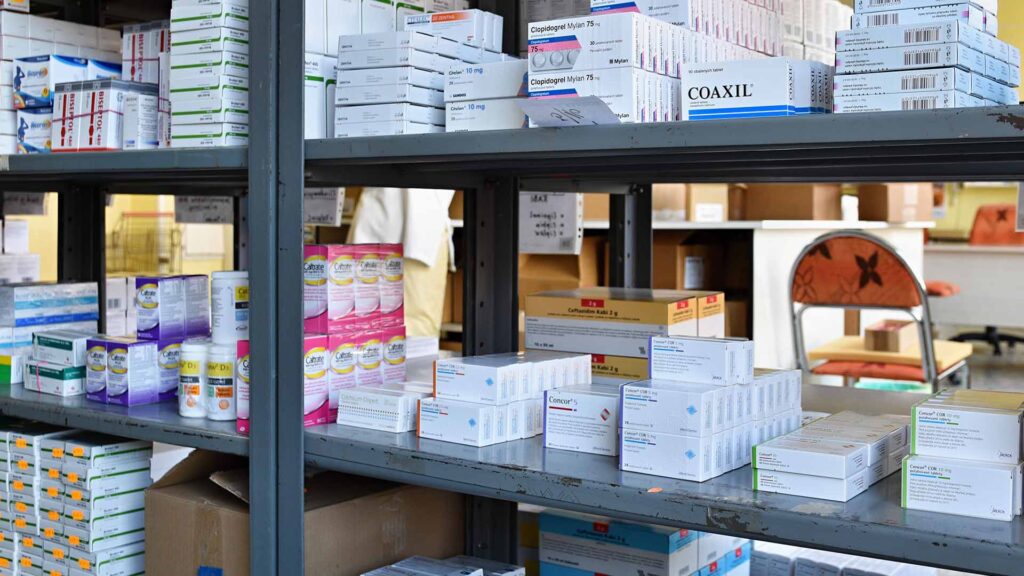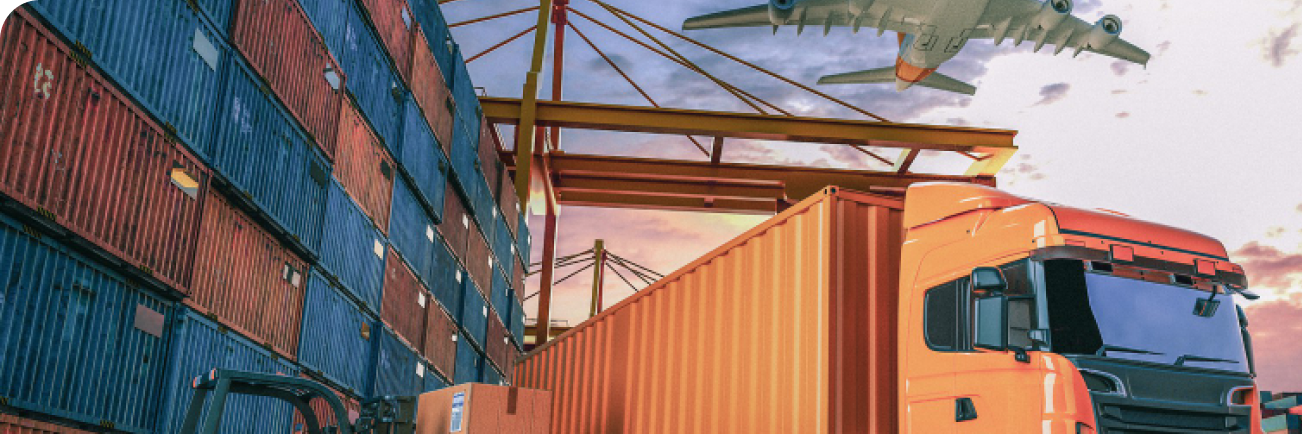Did Pharma Logistics have an important role in Supply Chain? Of course, Yes. The pharmaceutical industry plays a critical role in ensuring the health and well-being of people worldwide. From the manufacturing of life-saving drugs to the distribution of vaccines, every step in the pharmaceutical supply chain is essential. Among these vital steps, pharmaceutical logistics holds a paramount position. In this blog, we will delve into the world of pharma logistics, exploring its challenges, innovations, and the measures taken to ensure efficiency and safety in the transportation and storage of pharmaceutical products.
Understanding Pharma Logistics
When we delve into the Pharma sector, what can we see? Pharma logistics encompasses the planning, implementation, and control of the movement and storage of pharmaceutical products from manufacturing sites to end-users. This intricate process involves numerous stakeholders, including pharmaceutical manufacturers, logistics providers, distributors, and regulatory authorities. The primary objective of pharmaceutical logistics is to ensure the timely, safe, and efficient delivery of pharmaceutical products while maintaining their integrity and quality throughout the supply chain.
Various Aspects of Pharmaceutical Logistics
Now let us understand the various aspects of pharma logistics requires consideration of its key components and processes:
Transportation
The transportation of pharmaceutical products involves the movement of goods from manufacturing facilities to various distribution points, including wholesalers, hospitals, pharmacies, and clinics. It may also include international shipping for global distribution. Factors such as temperature control, security, and timely delivery are critical considerations in pharmaceutical transportation.
Storage and Warehousing
Proper storage and warehousing facilities are essential in pharma logistics. Temperature-controlled environments are required for storing temperature-sensitive products, ensuring that they are kept within specified temperature ranges. Other factors such as humidity control, security, and proper inventory management play crucial roles in maintaining product quality and availability.
Cold Chain Management
The cold chain refers to the storage and transportation of temperature-sensitive pharmaceutical products under controlled conditions. It typically involves maintaining specific temperature ranges, often within refrigerated or frozen conditions, throughout the supply chain. Cold chain management includes specialized packaging, temperature monitoring systems, and adherence to strict protocols to prevent product degradation or spoilage.
Quality Assurance
Quality assurance is a critical component of pharma logistics. It involves implementing robust quality control measures at each stage of the supply chain to ensure that products meet the required standards. This includes proper inspection, testing, and documentation of pharmaceutical products to verify their safety, efficacy, and compliance with regulatory requirements.
Challenges in Pharmaceutical Logistics

What are the key challenges faced by pharma during the transportation of pharmaceutical products? Healthcare logistics face several unique challenges that set it apart from other industries. Here are some of the key hurdles that need to be overcome:
Temperature Control
Many pharmaceutical products are temperature-sensitive and require strict temperature control throughout transportation and storage. Deviations from the recommended temperature ranges can render medications ineffective or even dangerous. Maintaining cold chain integrity is crucial to prevent spoilage, especially for vaccines and biologics.
Regulatory Compliance
The pharmaceutical industry is heavily regulated to ensure the safety, efficacy, and quality of medications. Compliance with regulations such as Good Distribution Practices (GDP) and Good Manufacturing Practices (GMP) is essential. Pharma logistics must adhere to these guidelines to prevent contamination, counterfeiting, and other risks.
Traceability and Visibility
Tracking pharmaceutical products at every stage of the supply chain is crucial for quality assurance, inventory management, and combating counterfeiting. Maintaining end-to-end traceability and visibility helps identify potential issues and ensures product integrity.
Time-Sensitive Deliveries
Some pharmaceutical products, such as emergency medications or clinical trial supplies, require urgent and time-sensitive deliveries. Logistics providers must ensure prompt and efficient transportation to meet these critical deadlines.
Innovations and Solutions
What technologies or innovations are being used in pharma logistics to enhance efficiency and safety, such as IoT, blockchain, or data analytics? To tackle the challenges posed by pharmaceutical logistics, various innovative solutions, and technologies have emerged. Here are some notable advancements:
IoT and Sensor Technology
The Internet of Things (IoT) and sensor technology play a pivotal role in monitoring and maintaining temperature control during transportation and storage. Smart sensors placed inside shipping containers or packaging transmit real-time data on temperature, humidity, and other relevant parameters, enabling proactive measures to prevent spoilage.
Blockchain
Blockchain technology has the potential to revolutionize pharma logistics by ensuring transparency, security, and traceability. By creating an immutable and decentralized ledger, blockchain can help prevent counterfeit products, streamline supply chain processes, and enhance stakeholder trust.
Cold Chain Packaging
Advanced cold chain packaging solutions, including insulated and temperature-controlled packaging, help maintain the required temperature during transportation. These packaging solutions incorporate materials that provide thermal insulation, minimizing temperature fluctuations and ensuring product stability.
Data Analytics
Leveraging data analytics can provide valuable insights into supply chain performance, demand forecasting, and risk management. By analyzing large volumes of data, pharmaceutical companies and logistics providers can optimize operations, reduce costs, and identify areas for improvement.
Ensuring Efficiency and Safety

How does pharma logistics contribute to ensuring the timely delivery of critical medications, such as emergency drugs or clinical trial supplies? Collaboration and best practices are key to ensuring efficiency and safety in this logistics. Here are some crucial steps to consider:
Collaboration
Collaboration among pharmaceutical manufacturers, logistics providers, and regulatory authorities is vital for streamlined operations and compliance. Close coordination helps identify potential bottlenecks, implement preventive measures, and ensure a robust and secure supply chain.
Standardization and Training
Adhering to industry standards and providing specialized training for personnel involved in pharma logistics is crucial. Standard operating procedures (SOPs) should be established, covering aspects such as temperature monitoring, handling procedures, and documentation, to maintain consistency and minimize errors.
Risk Assessment and Mitigation
Conducting comprehensive risk assessments helps identify vulnerabilities and potential disruptions in the supply chain. Mitigation strategies, including contingency plans and alternative transportation routes, should be in place to minimize the impact of unforeseen events.
Continuous Monitoring and Quality Control
Regular monitoring of temperature and environmental conditions during transportation and storage is essential. Quality control checks, including product sampling and testing, should be performed at various stages to ensure compliance with quality standards.
Conclusion
In conclusion, Pharma logistics is a critical component of the pharmaceutical supply chain, ensuring that medications reach patients safely and efficiently. Overcoming challenges such as temperature control, regulatory compliance, and traceability requires innovative solutions, collaborative efforts, and adherence to best practices. By embracing advancements in technology, implementing robust quality control measures, and fostering collaboration among stakeholders, this logistics industry can continue to optimize operations and enhance patient safety.
Galaxy Freight, as a trusted partner in pharma logistics, understands the unique requirements of the pharmaceutical industry. Their expertise in temperature-controlled transportation, regulatory compliance, risk mitigation, and supply chain visibility ensures the safe and efficient transportation of pharmaceutical products worldwide. By partnering with Galaxy Freight, pharmaceutical companies can have peace of mind, knowing that their valuable products are in capable hands and will reach patients with the utmost care and integrity.
For further information or to discuss your specific pharmaceutical logistics needs, contact Galaxy Freight, the leading freight forwarder in India.



